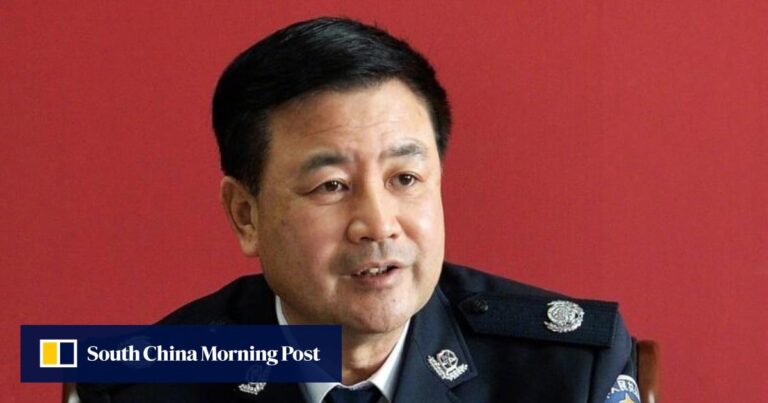Since then, state and city security forces have pledged to increase their use of big data to improve their ability to predict and prevent risks.
According to the Ministry of Public Security, these risks include telephone fraud, foreign gambling, political rumors, “harmful” online information and “subversive and subversive activities by domestic and foreign hostile forces.”
“Beijing… needs to be fully prepared to respond to all kinds of risks and challenges and uphold the security last line of not holding large public gatherings,” Qi told delegates from the capital. “There is,” he said.
In an article in the Law Daily on Monday, Jiangxi provincial police chief Yuan Qinhua pledged to prioritize identifying and preventing political risks, especially online and in universities.
Yuan, who is also vice governor of Jiangxi province, said the eastern province will also double its responsibility for risk management of large-scale events and management of mental health services.
He said the state will regularly review risk factors as the military develops a “hazard prevention system.”
Last Thursday, Song Jiayi, chief of police in Pingshan County, Hebei province's capital city of Shijiazhuang, said data integration would help police operations move from being reactive to “proactive, proactive, smart and integrated.” He said that this suggests a systematic change.
Chinese provinces and cities are seeking efforts to integrate data into centralized systems to help police make more efficient and targeted decisions.
As part of a pilot project, police in Lanzhou, the capital of Gansu province, monitored 494 cameras installed around residential properties from a central “control room.” They vowed Saturday to promote the model across the city.
Monitoring the moon?China brings surveillance camera network to space
Monitoring the moon?China brings surveillance camera network to space
China has one of the world's most sophisticated digital surveillance systems for social media and the internet. You must register your real name and mobile phone number, and there are extensive camera networks on the streets.
While the country is looking to high-tech innovations to pursue “new quality productive capabilities,” it is also eyeing technological advances to achieve “new quality combat capabilities” in the security field.
Last year, the central government began a three-year push to establish a specialized innovation center, including major technology projects to combat wire fraud and drugs, and to support testing, wireless communications and government coordination.
Some regions, such as Shanghai and Zhejiang province, began developing digital portals for police operations before the national plan was rolled out last year.



